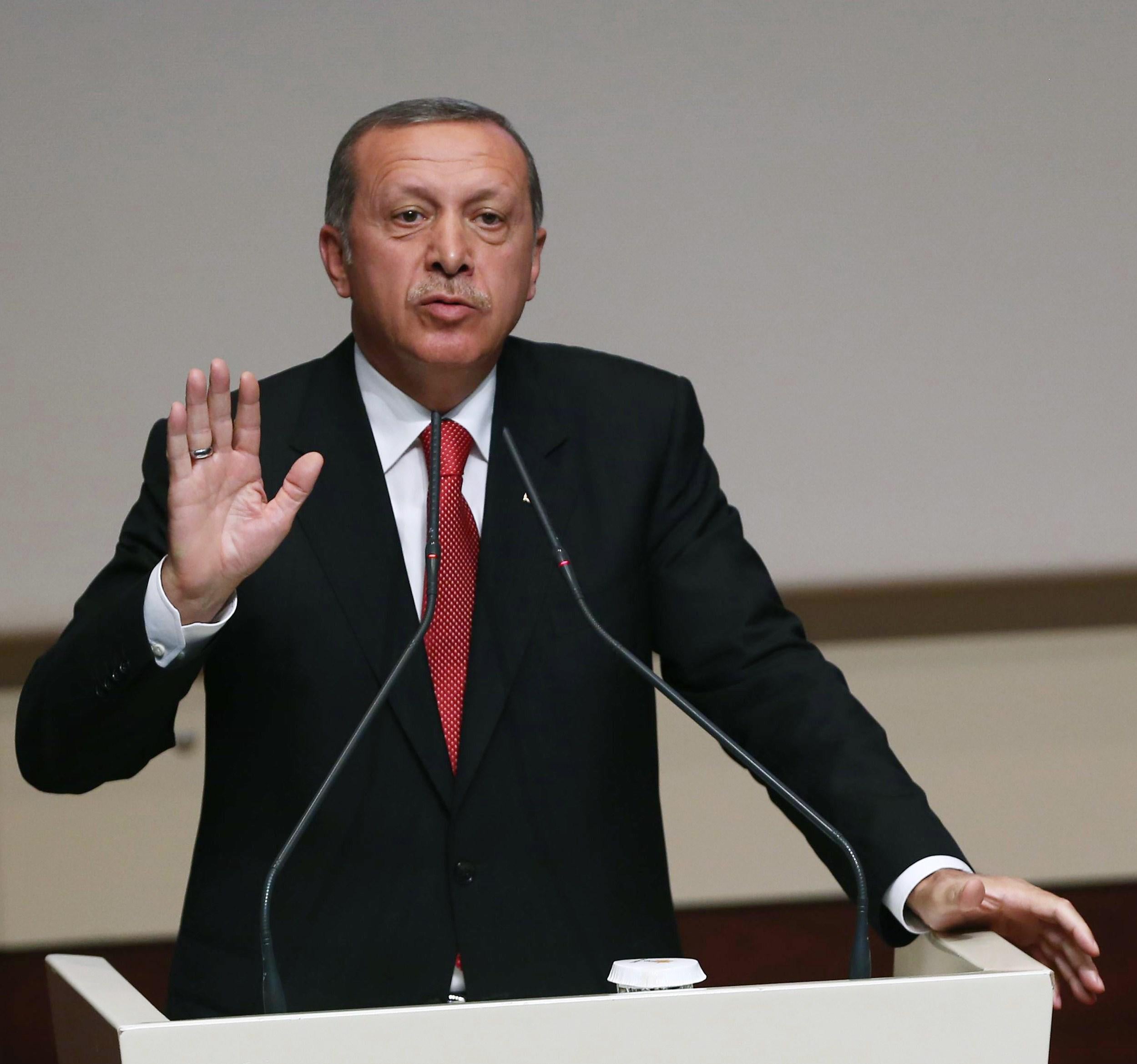As recently as last year, Turkey ranked as the world’s top jailer of journalists, ahead of even Iran and China. On a mission last week with the Committee to Protect Journalists, I was pleased to learn that the list of those imprisoned has shrunk from more than 60 to an apparent seven. On the same day that the Turkish parliament voted to authorize military action in Syria, the president, prime minister, and justice minister all made time to hear our group’s concerns about these cases and a range of other press freedom issues, from Internet censorship to media ownership.
That was the good news from a long day in Ankara. The bad news is that despite a diminished risk of criminal prosecution, media freedom in Turkey has deteriorated in other respects. Journalists we met with in Istanbul described a pervasive atmosphere of fear and self-censorship, a polarized, highly partisan media environment characterized by growing government control and fewer independent voices. The overall picture was of a new style of media censorship that is less brutal, less visible—and much more effective.
President Recep Tayyip Erdogan has been focused on getting major media into friendly hands, using behind-the-scenes pressure to control coverage and muzzle criticism. Arbitrary tax penalties are assessed to force newspapers into bankruptcy—after which they emerge, owned by friends of the president. According to a recent investigation by Bloomberg, Erdogan forced a sale of the once independent daily Sabah to a consortium of businessmen led by his son-in-law. Sabah is now an unofficial government mouthpiece, employing Erdogan’s son-in-law as a regular columnist.
As in many other countries, owning a Turkish newspaper has become a recipe for losing money. Helping to cover the losses of those papers that support Erdogan has become part of the price of doing business for companies seeking government contracts. One journalist aptly described media ownership as a “tax” on Turkey’s largest industrialists. In compensation, the government guides the flow of advertising dollars toward supportive media outlets, and away from opposition outlets.
Erdogan has had less success in controlling social media. Infuriated by leaks from a corruption investigation that he attributes to a conspiracy directed from Pennsylvania, he ordered Twitter and YouTube blocked in March. The blockages were easily circumvented, and Twitter usage actually increased as result. More recently, Erdogan pushed through parliament a law giving his telecommunications agency the power to demand takedowns of anything on the Internet without a court order.
On the day we spoke with Erdogan at the Cankaya Kosku presidential palace, that law was overturned by the Constitutional Court, which has emerged as a bastion of defense for media freedom in Turkey. But Erdogan is far from giving up on his efforts to restrict the Web, expressing particular frustration about the way the Islamic State uses it for recruitment. “Every day, I am more against the Internet,” he told us during a 90-minute discussion.
Both President Erdogan and Prime Minister Ahmet Davutoglu are clear about their definition of a free press. To them it includes the right to criticize the government, but only so long as the criticism is accurate and does not resort to profanity or “insult.” Davutoglu told us that he regards insults against his person as “attacks on the Turkish Nation.” Retaliation for this sort of lèse-majesté ranges from filing lawsuits against offending journalists, to initiating criminal investigations, to calling their bosses and demanding that they be fired. Reporters keeping score court more than 80 journalists let go under political pressure since the Taksim Square protests in 2013.
Foreign journalists, who are harder to sue and fire, have been targets of vilification campaigns. After Erdogan denounced Amberin Zaman, the longtime Economist correspondent, as a “shameless militant,” and told her to “know your place,” she was deluged with threats of violence. A few weeks ago, the New York Times reporter Ceylan Yeginsu had to leave Turkey for her own safety after Erdogan denounced her because of the caption attached to a photograph that accompanied one of her stories. Pro-government media depicted her as a traitor and an American spy.
The decline of press freedom in Turkey mirrors developments in Russia, Hungary, and Venezuela, where neo-authoritarian regimes have used parallel techniques to control domestic coverage, intimidate foreign correspondents, and censor the Internet. As in Turkey, the survival of opposition publications creates the appearance of a free press. Independent media, meanwhile, is being squeezed out of existence.
A version of this article appeared on FT.com.
